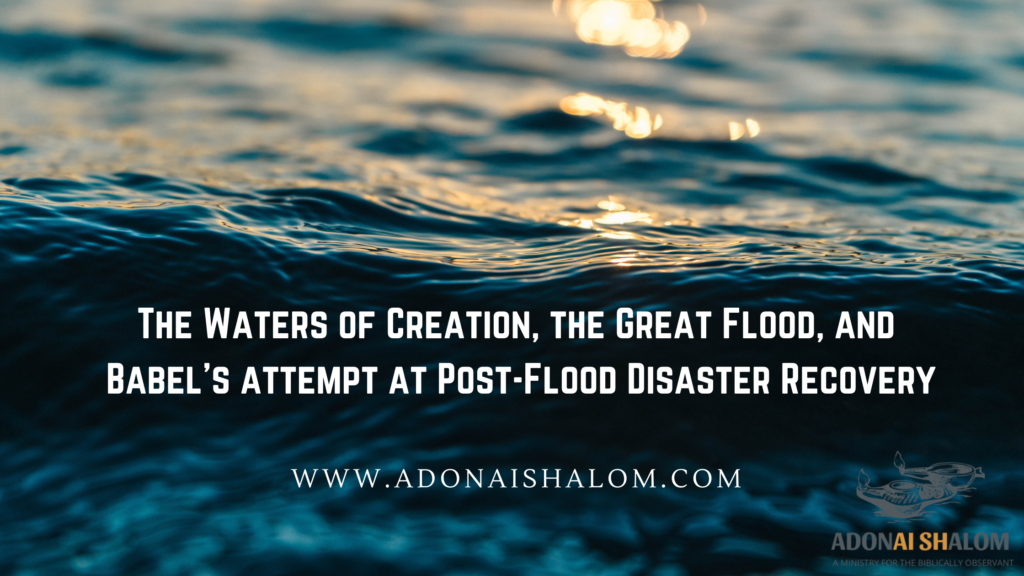
Parashat Noach (Genesis 6:9-11) 5783 B”H
The Holy Spirit hovered over the Waters at Creation
In studying Parashat B’reishit, I emphasized how Genesis 1:2 can help you share the Gospel. You may recall that I shared how this particular verse can be especially powerful when interacting with members of the Jehovah’s Witness organization. (Here is that post in case you missed it).
Today we move further into Genesis and we will see the consequences of what happens when people choose not to walk in the way of the LORD, but choose their own ways and their own misguided understandings at Babel.
B’reishit/Genesis 1:2 tells us:
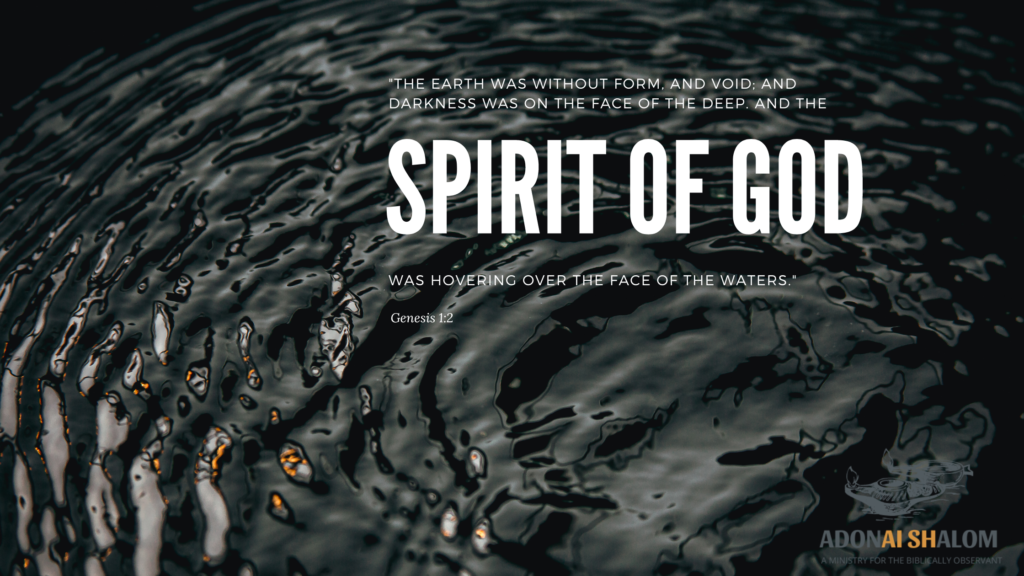
The Spirit of God (Ruach Elohim) was present at creation. Not some limited “active force.” Not something nebulous, unknown, or impersonal. We are talking about the Spirit of God here!
The very Spirit of the Most High God. The Holy Spirit. The Glorious, Marvelous, Wonderful, Precious Holy Spirt. So very near, so very known to those who seek Him, and so very personal that He indwells those who receive Him. Today, many do not focus on the Holy Spirit’s power and His ongoing work to empower believers. Yet, right away in verse 2 of the entire Bible is the Spirit of God made mention.
The Holy Spirit was hovering over the face of the waters.
In a sense, the earth was flooded – the waters at creation were parted on Day 3 so there could be dry land. The Spirit of God hovered because this implies a closeness, a nearness.
Not quite touching – not yet – but ever so near.
Not yet touching because there was yet darkness on the surface. But:
“Then God said, “Let there be light!” and there was light.” Genesis 1:3
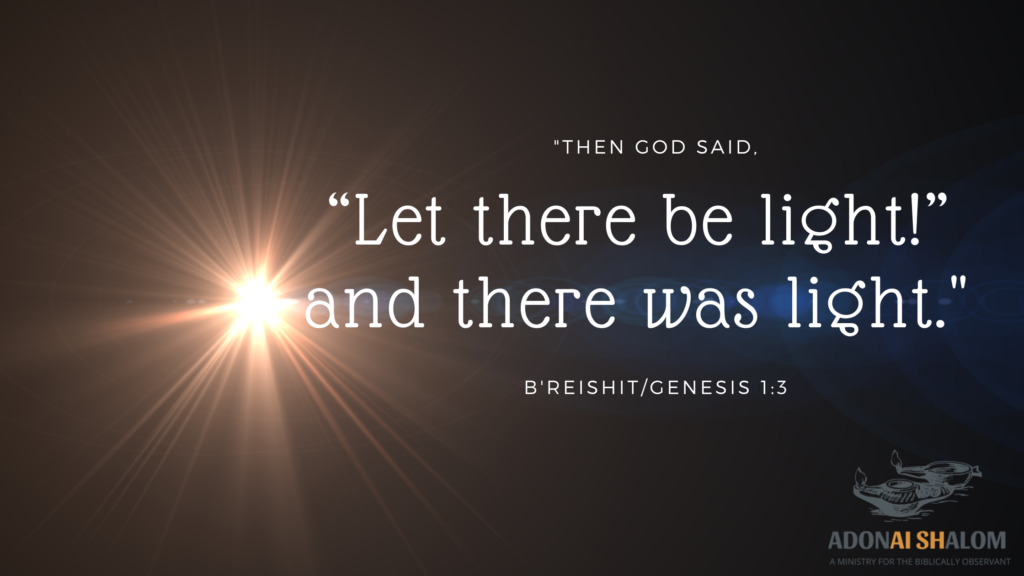
I imagine this was such a powerful, explosive moment!
The creative power of the Holy Spirit poured forth to bring form to the earth and fill that which Scripture calls a void. All-inspiring, awesome power. And LIGHT.
We so desperately need the Holy Spirit of the LORD and the Light of His Truth!
As we just celebrated during the Feast of Tabernacles (Sukkot), He is the Living Water!
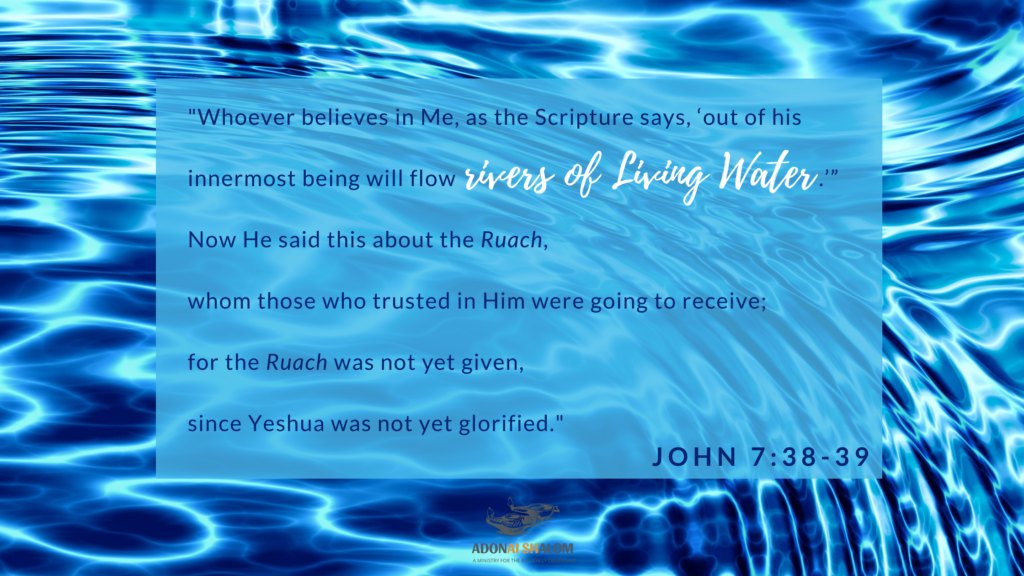
Sinful humanity preferred the darkness rather than the Light
The LORD provided a beautiful world for us, but sin entered in. Yochanan (John) so eloquently wrote of this in his Gospel account:
It took ten generations from the time of Adam, but divine patience had run out. People repeatedly chose immorality and corruption over righteous living. The earth would be flooded.
Noach and his family survived the Great Flood
Noach נֹחַ (Noah) chose to walk in the Light.
Genesis 6:9 documents for us that Noach “walked with God!”
Surely Noach knew the priceless value of having the Spirit of the LORD guiding him in life.
When God told him to build the ark, Noach recognized God’s voice and followed the instructions given to him.
He believed God at His Word.
If age should teach us anything, it is that God’s Word always stands the test of time. Noach was 600 years old when the floodwaters came (Genesis 7:6). He knew God is reliable, and he chose to do as he was commanded.
Genesis 6:8 reveals that Noach found favor in the sight of the LORD.
Why? Because he dared to believe. He dared to trust God!
Noach’s boldness to believe spared him and his family.
After the Great Flood, it didn’t take long for humanity to once again make poor decisions.
Babel’s connection to the Flood
The Hebrew root word for flood, “mabbul” מַבּוּל, is actually related to the term “Babel” בָּבֶל.
You can hear the relatedness in the endings of the words: “ma-bul”. “Ba-bel.”
The Shared Memories of the Babel Community
The Flood was a part of the collective, or shared, memory of the Babel community.
As a group, the people living in that region of Shinar – known today as Babel – knew that they were descendants of flood survivors.
They had grown up hearing stories about great Grandpa Noach!
They knew the Flood had been real.
There was probably evidence in the vegetation and foliage around them. Perhaps downed trees or short shrubs growing back following the aftermath of the Flood.
People grew up in disaster recovery/survivor mode knowing their parents had either seen the days after the Flood firsthand or knew someone who had.
Post-Flood Disaster Recovery: Was the idea of building a tower so bad?
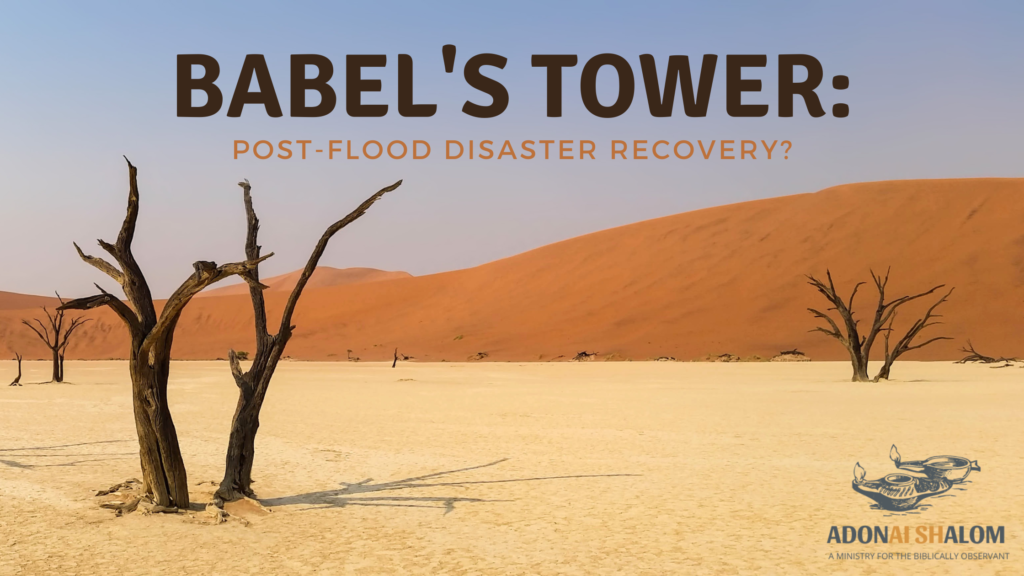
If your closest relatives had survived a major flood, wouldn’t you be interested in building on higher ground?
Wouldn’t you consider building “up” in hopes of avoiding a future deluge?
A watchtower could be incredibly useful. Someone could be assigned the job to check for rising water levels from afar!
Even if a future flood wasn’t the concern, a watchtower to provide advance warning of enemy advances could surely prove useful.
Building a tower wasn’t such a bad idea in and of itself.
And perhaps what happened in that place serves as a reminder to us to not rush quickly to judgment when considering the motives of others. Nonetheless, the Scriptures do indicate that the people did have selfish motives.
The problem was their rebelliousness:
The People Wanted MORE than a Tower
The generations after Noach who lived in Babel did not learn from previous generations’ mistakes. The disaster of the Flood wasn’t enough for them – they brought disaster upon themselves once again:
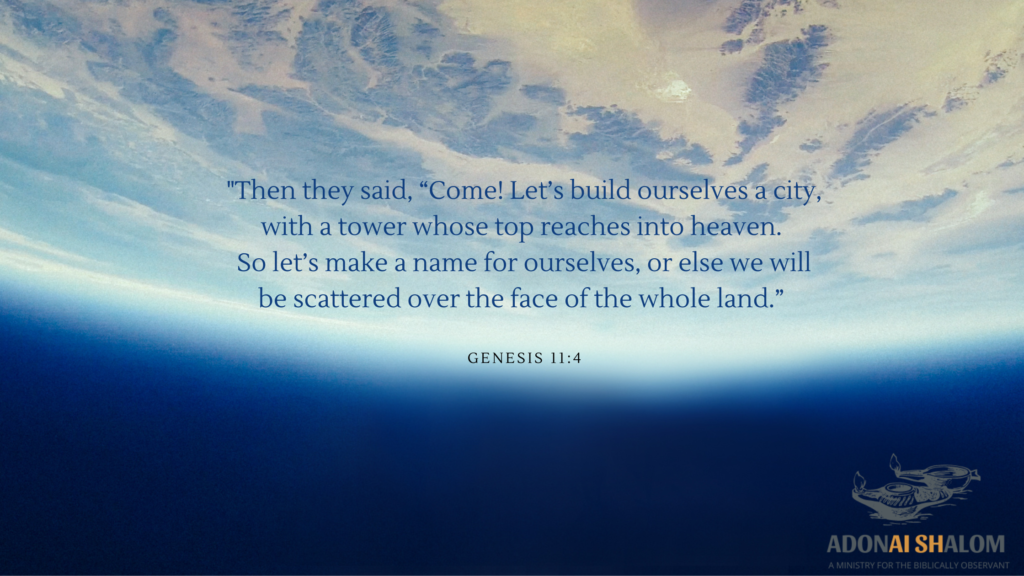
The people wanted to make a name for themselves.
They wanted to establish a city and make themselves great.
They make no mention of building a city to honor the God who had rescued their families from the Flood.
They feared being scattered, so they united to build a tower whose top was to reach into heaven.
The people at Babel didn’t want to reach the edge of the sky or the edge of heaven, they wanted to reach into heaven: to go beyond the natural, God-ordained boundaries.
Their ambition got the best of them.
At Babel, the people demonstrated that unity can be productive. These people worked together – motivated by fear – to build a high place. They all spoke the same language and were able to communicate with ease.
Whether the purpose of the tower was for idolatrous worship or to create a throne for a primitive communist or totalitarian regime, the unity at Babel was not centered around a common godly purpose.
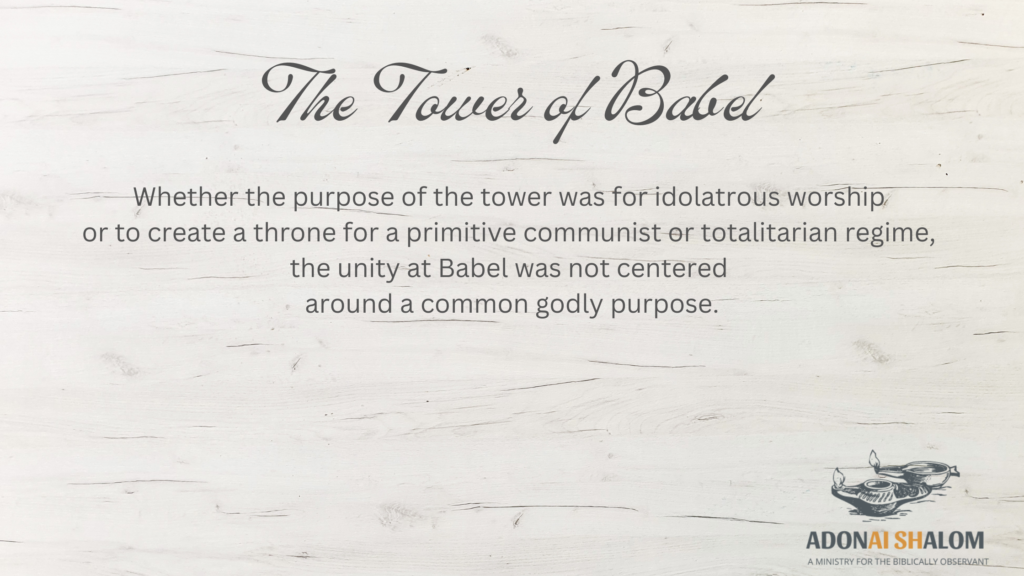
The city construction project and its tower had to be stopped. Sadly, the people unwittingly predicted their own demise: they certainly would be scattered over the face of the whole land:
“Then ADONAI came down to see the city and the tower that the sons of man had built.” Genesis 11:5
Notice: the LORD came down.
The tower may have been tall according to human standards, but it was short enough to God that He chose to come down to get a closer look at it.
Confusion of Languages
Do you enjoy foreign language study? Learning another language wasn’t necessary before that tower was built so if you find foreign languages hard, blame the Babel-onians.
The word “babel” is also closely related to “balal” בָּלַל, a verb that Strong’s Concordance describes as meaning not only “to confuse” or “to confound,” but also “to mix,” “to mingle,” and intriguingly, “to anoint.”
I have studied many languages and I actually enjoy it. What really intrigues me is when there are linguistic similarities between languages on complete opposite sides of the globe. There is so much evidence that what the Bible tells us occurred at Babel truly, historically, did happen. The world’s languages are mixed and mingled and they all came from one source.
So the LORD caused language to become mixed and the people’s communication confounded. But what about the possibility to translate this term “babel” with the kingly concept of “anointing?”
I think of it like this: the tower was anointed for its burial! There is speculation that the ruins of the Tower of Babel are being uncovered in Iraq, so there may be part of the tower still standing to this day, but all of these years . . . it has been dead and buried.
The true King of all kings, the True Anointed One, was showing these people who was still in charge.
The reversal of Babel at Pentecost (Shavu’ot)
Babel caused a lot of issues even for us today:
How much time and money goes into translation projects!
How difficult it can be to share the Good News that Messiah Yeshua (Jesus) has come with those who do not speak our language!
But thankfully, the LORD God reversed what happened at the Tower of Babel when He sent His Ruach haKodesh, His Holy Spirit on the day of Pentecost (Shavu’ot):
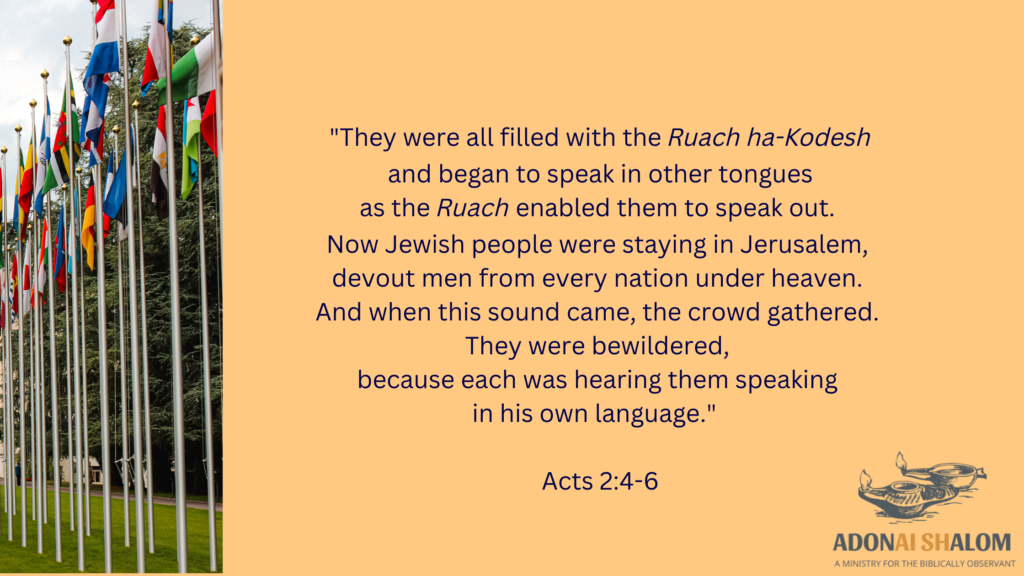
I have witnessed miracles in which people who do not speak the same language have been able to understand each other thanks to the gift of tongues. I have heard testimonies of the Gospel preached in a foreign tongue the speaker does not know, but the congregation does. The power of God is real, and there is restoration and freedom from every curse when we place our trust in Him, and Him alone.
The Spirit of the LORD will come upon you, just as He came upon the waters at the time of creation. Seek the LORD and you will surely receive the blessings He has for you.
Rising Above the Waters
The LORD will never flood the whole earth again, but natural disasters will still affect certain places at times. Floods have become so very frequent, and many have suffered great losses due to these catastrophic events.
Have you ever lost your home to a flood?
Have you ever worked or volunteered on a disaster response team and seen firsthand such widespread destruction?
Has a recent hurricane affected you or your loved ones?
Know this: God is a God of restoration. He will help you to rise above the waters. Just as Yeshua (Jesus) rose from the dead, He can resurrect what has been lost – whether in this life or the life to come. He had mercy on us when He sent His Son and His Spirit to give us a future and a hope after the Flood and after the Tower incident. He is a forgiving and loving Father, and He wants to care for you.
Will you be like Noach and walk with Him today?
Differentiate yourself from those who would take matters into their own hands. Instead, seek the guidance of the Holy Spirit when you make decisions and in this way, He will help you get through any situation!
We would love to hear from you. Comment below and share this post with your friends! Also, please subscribe to our monthly newsletter so you can stay updated on our ministry!




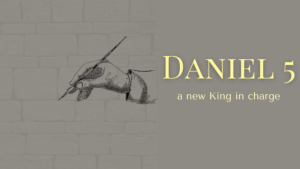
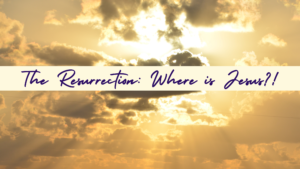

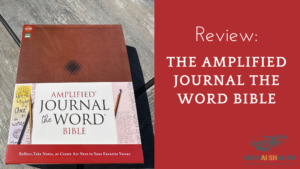
Great teaching here, I had never really connected the building up of the tower with the aftermath of the flood, so that was interesting. And the reversal of Babel at Pentecost bringing the gift of tongues – so encouraging!
Yes, I’ve often looked at the Tower account on its own without really thinking about the background leading up to it! I enjoyed studying for this. And yes, praise the LORD for the Pentecostal gifts!! Thanks for your comment today!!